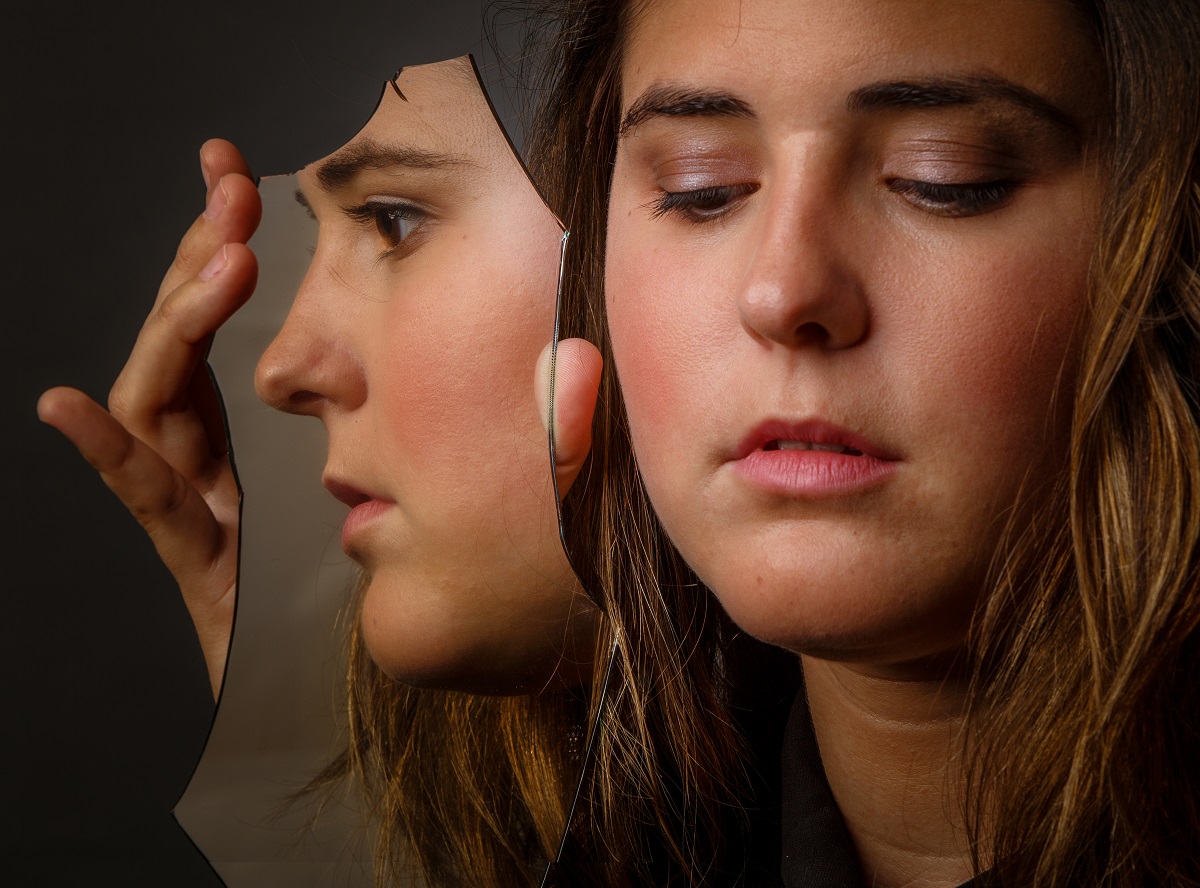Each person has unique personalities that consist of a combination of different traits. These traits affect understanding and relating to the situations around them and how a person sees him/ herself. In normal circumstances, a person’s personality helps to adapt to different environmental changes that lead to a healthy relationship with other people and better-overcoming plans for stressful situations. In case an individual has poor traits, it may provoke inflexibility and different problems. For instance, when stressful situations occur, some people tend to manage them with alcoholic beverages or misuse recreational drugs, which usually leads to various problems not only in relationships.
In most cases, people’s personalities are created early in life and depend on the following factors. For example:
- Genes – Biological parents can pass some personality traits to biological children. Such traits are usually known as temperament.
- Environment – For example, interaction with family members and friends, events that occur near you, relationships, and others.
A mental condition in which a person experiences life-long reactions that commonly lead to problems is known as a personality disorder. Those who suffer from these mental disorders tend to have a hard time understanding emotions and tolerating distress. Such people mostly react impulsively and it leads to discomfort for people around them. Thus, people with personality disorders usually experience problems with family life, social activities, work, school performance, and overall quality of life.
Symptoms
Sometimes, people do not realize they have a personality disorder because in their opinion they think and behave naturally. Moreover, those who suffer from these mental disorders may think that other people are responsible for their difficulties.
In any case, there are different personality disorders that provoke different symptoms. Experts classified personality disorders into three groups. Examples include:
Group A Personality Disorders
In such cases, people experience persistent dysfunctional patterns of behavior and thinking that lead to suspicion or lack of interest in other people. Check below some of them:
Paranoid Personality Disorder
Check below some symptoms that happen in people with this personality disorder type:
- Lack of trust
- Such people are suspicious of others and think that someone is trying to harm them without reasons
- Doubts the loyalty of others
- Do not willing to trust other people
- Avoid to confide in other people because of fear that the information can be used against them
- Some remarks and not threatening situations can be interpreted as insults or attacks
- They are suspicious that a spouse is unfaithful despite no reason for that
- Most of them have a habit of holding grudges
- Some of them can also become hostile and angry about something that they believe is an insult or slight
Schizoid Personality Disorder
- They appear cold to or lack interest in other people
- Inability to take pleasure while doing different activities
- Limited expressed emotions
- Loneliness
- Do not have an interest in sexual activities
Schizotypal Personality Disorder
- Unusual beliefs, thinking, speech, or behavior
- Some people may feel or think strange things (such as hearing a voice that whispers their name)
- Social anxiety (such as discomfort with making close connections with other people)
- People with this personality disorder can also respond to other people in ways that are not proper or show a lack of interest
- Unusual social-emotional responses
- Sometimes they believe that their thoughts can impact other people and events
- They also believe that different casual incidents have hidden messages
Group B Personality Disorders
People with the following personality disorders have a dysfunctional pattern of dramatic and overly emotional thinking or unpredictable behavior. Check below some of them:
Borderline Personality Disorder
- Strong fear of loneliness or of being abandoned
- Feelings of emptiness
- Such people see themselves as weak and unstable
- They usually have deep and unstable relationships
- Mood swings (commonly provoked by stress when interacting with other people)
- Self-harm or behaviors that may lead to suicide
- Those who suffer from this personality disorder are very angry most of the time
- Risky and impulsive behavior (including unprotected sexual activity, gambling, or binge eating)
- Paranoia linked to stress (this symptom usually comes and goes)
Histrionic Personality Disorder
- Such people every time seek attention
- They are overly emotional or dramatic
- Dramatically speaking with strong opinions but usually with no facts
- Quickly emotional change
- These people are easily led by others
- Those who suffer from this personality disorder are very worried about their physical appearance and think that certain relationships are closer than they are.
Narcissistic Personality Disorder
- They have different fantasies about power and success and think they are attractive to other people
- Mostly, they believe that are special and more important than other people
- Commonly, they cannot understand the needs and feelings of other people
- Such people usually lie about their achievements and talents
- Narcissistic people feel superior to others and often brag about it
- Every time expect favors and advantages without any good reason
- Usually, people with this personality disorder are very jealous of others and think others are jealous of them
Antisocial Personality Disorder
- Usually, have little or even no worries about the feelings and needs of other people
- Such people usually lie, steal, use false names, have repeated run-ins with the law, violate the rights of other people, and have aggressive, and impulsive behavior
- They usually do not have concerns about personal or other people’s safety
Group C Personality Disorders
Avoidant Personality Disorder
- So sensitive to rejection or criticism
- Such people usually do not feel good enough, attractive, or important
- They often do not participate in work activities that involve direct contact with other people
- Are isolated
- Do not find it cool to try new activities and don’t like meeting new people
- Extreme shy in social settings
- Experience fear of disapproval, being made fun of, or embarrassment
Dependent Personality Disorder
- People with this personality disorder rely too much on other people
- Are often submissive or clingy toward other people
- Have fears to take care of themselves
- Do not experience confidence in abilities
- Such people commonly find it hard to begin or do projects or to disagree with others because fearing of disapproval and lack of self-confidence
- They can also endure poor treatment or abuse when are available other options
Obsessive-Compulsive Personality Disorder
- These people are focusing too much on orderliness, rules, and details
- It is difficult for them to finish a project because cannot reach the perfection
- They are unable to assign tasks to other people
- Usually, ignore friends and other enjoyable activities because they are focusing too much on work
- Such people also find it difficult to throw away broken or worthless objects
- Are stubborn and rigid
- Cannot be flexible about ethics, values, or morality
It is important to not mistake obsessive-compulsive personality disorder and obsessive-compulsive disorder (an anxiety disorder). Furthermore, those who suffer from a personality disorder have symptoms of at least one other type.
It is advised to see a mental health specialist or healthcare professional if you suspect you have a personality disorder. In case you ignore the symptoms and don’t receive treatment, it may lead to serious mood and relationship problems.
Causes
Experts believe that personality disorders develop depending on genetics and how the environment affects you. For instance, genetic factors can make you more prone to develop a personality disorder and environmental factors could trigger the symptoms.
Risk Factors
Despite the exact cause of personality disorders is now known, the following factors seem to increase your risk. For example:
- Personality traits – For example poor impulse control, trying to stay away from harm, or a potent need to seek new activities usually to get a surge of adrenaline.
- Early life experiences – For example history of trauma (such as physical neglect, abuse, emotional neglect, sexual abuse, and others).
What Are The Possible Complications of Personality Disorders?
Not treating these disorders may lead to serious problems in your and your loved one’s lives. These usually include problems in relationships, work, or school. In other cases, it may lead to addictions, legal problems, other mental diseases, and social isolation.
Diagnosis
Usually, physicians perform the following tests to determine which type of personality disorder affects you. For example:
- Physical examinations – Used to check for physical health concerns and laboratory tests to determine if you are using drugs and alcohol.
- Mental health evaluation – This test involves discussions about your behavior, feelings, and thoughts.
- Standard guidelines – Doctors can compare your symptoms to the guidelines in the Diagnostic and Statistical Manual of Mental Disorders (DSM-5-TR).
- Neuropsychological tests – In such cases, doctors perform personality and cognitive tests to understand how you interpret the world around you.
Treatment
Sometimes, it is challenging to find the best treatment for a patient. It usually depends on several factors including the severity of the condition and symptoms, other existing diseases, addictions, and others. Commonly, a personality disorder treatment involves different healthcare specialists. For example:
- Psychiatrist
- Psychologist or another therapist
- Psychiatric nurse
- Pharmacist
- Social worker
One of the most common treatment options for personality disorders is talk therapy (also known as dialectical behavioral therapy). Moreover, talk therapy is a form of psychotherapy.
Talk Therapy
This is an effective treatment option in severe cases of personality disorders. It is usually used to treat dangerous behavior (such as suicide). The duration of the treatment is one time weekly for about one year.
Medications
However, there are no medications approved by the FDA for personality disorder treatment. Healthcare providers usually prescribe the following medicines to treat symptoms of these disorders. Examples include:
- Antidepressants – These medicines help if you feel depressed, angry, impulsive, irritable, or hopeless.
- Mood stabilizers – This group of medications usually helps to reduce mood swing episodes and lessen irritability and aggression.
- Antipsychotic drugs – These medicines are also known as neuroleptics and they help with psychosis, anxiety, and anger problems.
- Anti-anxiety medicines – Physicians often prescribe these medications when a person cannot sleep or is agitated, or anxious.
Frequently Asked Questions
What are the most common personality disorders?
- Histrionic personality disorder
- Antisocial personality disorder (ASPD)
- Borderline personality disorder (BPD)
- Narcissistic personality disorder
What are the most challenging personality disorders to treat?
Antisocial, Borderline, and Narcissistic personality disorders are considered the most difficult to treat. In most cases, people who suffer from previous personality disorders do not accept they have these problems. Consult with your healthcare professional for more details.
What is the best treatment for personality disorders?
Dialectical behavioral therapy is considered one of the most effective treatment options for those who suffer from personality disorders. Discuss with your healthcare professional if you suspect you have a personality disorder. In case you have any other questions, ask your doctor.




